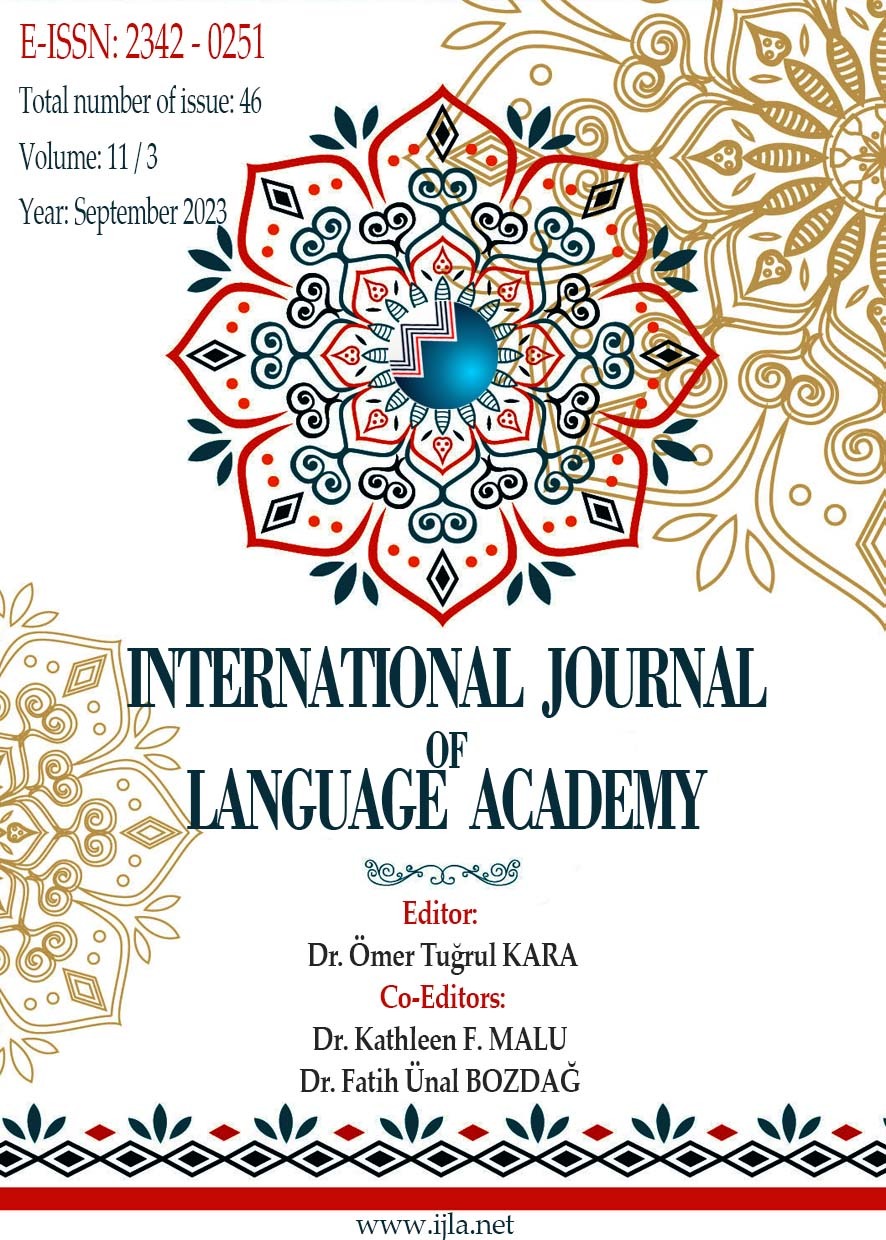Author :
Abstract
Bu çalışma yaratıcı düşünmenin tarihsel ve pedagojik çerçevesi ile bunun Türkçe eğitiminde temel dil becerilerinin gelişimine yansımasını ortaya çıkarmayı amaçlamıştır. Tarama deseninde gerçekleştirilen çalışmada, yaratıcı düşünme ile ilgili bilimsel çalışmalar detaylı olarak incelenmiş ve kavramın genel çerçevesi ile dayandığı temel ilkeler ortaya konmuştur. Bu kapsamda yaratıcı düşünmenin ortaya çıkışı, ele alınma biçimi, kavram etrafında ortaya çıkan tartışmalar, eğitime yansımaları, öğretilebilirliği, ölçme ve değerlendirme şekli, temel dil becerilerinin gelişimine katkısı çalışma kapsamında detaylandırılan başlıklardır. Bu kavramsal sınırlar dâhilinde yürütülen çalışmada temel dil becerilerinin öğretiminde yaratıcı düşünme odaklı süreçlere yer verilmiştir. Yaratıcı düşünmeye yönelik ilk araştırmaların temel perspektifi belli insanlara verilmiş ayrıcalıklı bir beceri olduğu inancına dayanmıştır. Zamanla her insanın potansiyel yaratıcılık taşıdığı ve yaratıcı düşünmenin öğretilebilir bir beceri olduğu kanısı yaygınlaşmıştır. Alandaki araştırmalara göre bir yaşam becerisi olarak farklı düzeylerde ortaya çıkabilen yaratıcı düşünme; eğitim sitemi, öğretim programları, sınıf ortamı, öğretmen ve öğrenci tutumları, sosyal çevre gibi farklı değişkenler tarafından etkilenmektedir. Bu değişkenlerin sürece olumlu yansımasına bağlı olarak yaratıcılık becerisi gelişebilmektedir. Bütün dünyada yaratıcı düşünmeyi benimsemiş nesillerin yetiştirilmesi için yoğun çaba gösterilmektedir. Yapılandırıcı yaklaşımın benimsenmesiyle birlikte Türk eğitim siteminde yaratıcı düşünmeye daha çok vurgu yapılmaktadır. Kavramın doğası temel dil becerilerinin karakteriyle büyük ölçüde uyum göstermektedir. Dil becerileri, dilin doğası gereği yaratıcı beceriler olduğu için yaratıcı düşünmeden beslenmektedir.
Keywords
Abstract
This study aims to reveal the historical and pedagogical framework of creative thinking and its reflection on the development of basic language skills in Turkish education. This study which employs scanning design further examines in detail the scientific studies on creative thinking, the basic principles of the concept as well as the general framework of the concept. In this context, the emergence of creative thinking, the way it is handled, the discussions that arise around the concept, its reflection on education, the way how it is taught, the way of measurement and evaluation, and its contribution to the development of basic language skills have been taken topics of the study. With these conceptual topics in mind, the study has included creative thinking-oriented processes for the teaching of basic language skills. The basic perspective of early research on creative thinking has been based on the belief that it is a privileged skill given to certain people. But after a while the belief that every person has potential creativity and that creative thinking is a teachable skill has become widespread. Researches in the literature show that creative thinking can occur at different levels as a life skill, and is affected by different variables such as education system, curricula, classroom environment, teacher and student attitudes, and social environment. Creative thinking can develop, provided that these variables are positively associated. All over the world, intense efforts have been made to raise generations who have adopted creative thinking. With the adoption of the constructivist approach, more emphasis is placed on creative thinking in the Turkish education system. This is because that as the language skills intrinsically are the creative skills, creative thinking is naturally incorporated in language learning process.





